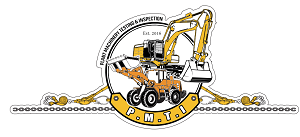
Plant and Machinery Testing: How GA1 Regulations Enhance Safety in Ireland
Plant and machinery form the backbone of many industries in Ireland, from manufacturing and construction to agriculture and waste management. Ensuring their safe operation is paramount, not only to protect workers and the public but also to optimize productivity and prevent costly downtime. This is where plant and machinery testing plays a vital role, and the GA1 regulations in Ireland serve as a crucial framework for ensuring effective and comprehensive testing procedures.
Why is Plant and Machinery Testing Important?
Regular testing of plant and machinery offers a multitude of benefits:
- Enhanced Safety: Testing identifies potential hazards and defects before they can cause accidents, injuries, or even fatalities. This proactive approach minimizes risks and safeguards the well-being of workers and anyone near the machinery.
- Improved Reliability: Testing uncovers weaknesses or worn-out components before they lead to breakdowns or malfunctions. This preventive maintenance ensures smooth operation, minimizes downtime, and extends the lifespan of the machinery.
- Reduced Costs: By preventing accidents and breakdowns, regular testing saves companies money on potential lawsuits, repairs, and lost productivity. Additionally, maintaining machinery in good condition improves efficiency and reduces energy consumption.
- Compliance with Regulations: GA1 regulations mandate regular testing for specific types of machinery. Adherence ensures legal compliance and avoids potential fines or penalties.
- Peace of Mind: Regular testing provides operators and employers with peace of mind knowing their machinery is functioning safely and reliably.
How Do GA1 Regulations Improve Safety?
The GA1 regulations, enforced by the Health and Safety Authority (HSA) in Ireland, establish a comprehensive framework for ensuring the safety of plant and machinery. Here’s how they contribute to enhanced safety:
- Specific Requirements: GA1 outlines clear and specific requirements for testing frequency, methodologies, and competence of testers. This ensures consistency and effectiveness in testing procedures.
- Risk-Based Approach: The regulations emphasize a risk-based approach, where the testing frequency and scope are determined by the inherent risks associated with the machinery. This ensures that higher-risk machinery receives more rigorous testing.
- Competent Testers: GA1 mandates that testing is conducted by competent persons who possess the necessary qualifications and experience to identify and assess potential hazards.
- Detailed Documentation: The regulations require thorough documentation of testing procedures, findings, and remedial actions taken. This transparency allows for traceability and continuous improvement in safety practices.
- Enforcement and Guidance: The HSA actively enforces GA1 regulations and provides guidance to companies on compliance. This ensures consistent implementation and promotes a culture of safety within organizations.
Beyond Regulations: A Culture of Safety
While GA1 regulations provide a strong foundation for plant and machinery testing, it’s crucial to cultivate a broader culture of safety within organizations. This includes:
- Regular training and awareness programs for workers on safe operating procedures and hazard identification.
- Investment in proper personal protective equipment (PPE) and ensuring its consistent use.
- Encouraging a reporting culture where workers feel comfortable raising safety concerns without fear of repercussions.
- Continuous improvement through regular safety audits and reviews.
By combining robust regulations like GA1 with a proactive safety culture, Ireland can ensure that its workplaces remain safe and productive for everyone involved.
Note: It is important to remember that this information is not a substitute for professional legal advice or the official guidance provided by the Health and Safety Authority (HSA). Always refer to the latest regulations and seek expert advice for specific situations.


